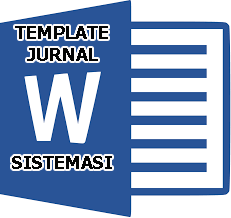Implementation of MeCUE 2.0 Method in Evaluating MyTelkomsel User Experiencel
Abstract
Full Text:
PDFReferences
N. Huda, M. D. T. Lisandi, H. T. Albanna, M. F. Rhomadon, J. R. Hidaya, and F. Habrizons, “Analisis Kepuasaan Pengguna Aplikasi MyTelkomsel Menggunakan Metode System Usability Scale,” Jurnal Sistem Informasi dan Sistem Komputer, vol. 9, no. 2, pp. 124–133, 2024.
Telkomsel, “Terdepan Dalam Inovasi - Laporan Keberlanjutan 2010.” Accessed: Oct. 17, 2024. [Online]. Available: https://www.telkomsel.com/media/upload/CSR/02%20TSel%20SR-ind-02-small.pdf
D. Setiyawan, “Evaluasi Penggunaan Aplikasi MyTelkomsel dengan Menggunakan Metode System Usability Scale (SUS) untuk Peningkatan User Experience,” in Prosiding SENDIKO (Seminar Nasional Hasil Penelitian & Pengabdian Masyarakat Bidang Ilmu Komputer), 2024.
E. Pardede and Y. Hartiwi, “Analisis Usability Pada Aplikasi Mytelkomsel Menggunakan Metode Importance Performance Analysis Terhadap Kepuasan Pengguna,” Jurnal Manajemen Teknologi Dan Sistem Informasi (JMS), vol. 4, no. 1, pp. 638–646, 2024.
F. J. Fauzan, M. Afdal, and R. Novita, “Penerapan Machine Learning Pada Analisis Sentimen Aplikasi Mytelkomsel Mengunakan Data Ulasan Google Playstore,” The Indonesian Journal of Computer Science, vol. 13, no. 3, 2024.
F. A. Laksono, S. H. Wijoyo, and A. R. Perdanakusuma, “Pengaruh Kualitas Layanan Terhadap Kepuasan Pelanggan dan Loyalitas Pengguna MyTelkomsel Dengan Menggunakan Model E-Service Quality dan E-Recovery Service Quality (Studi Kasus: Pengguna Aplikasi MyTelkomsel Malang),” Jurnal Pengembangan Teknologi Informasi Dan Ilmu Komputer, vol. 4, no. 2, pp. 541–549, 2020.
A. Ibrahim, F. S. Elisa, J. Fernando, L. Salsabila, N. Anggraini, and S. N. Arafah, “Pengaruh E-Service Quality Terhadap Loyalitas Pengguna Aplikasi MyTelkomsel,” Building of Informatics, Technology and Science (BITS), vol. 3, no. 3, pp. 302–311, 2021.
E. Kaniawati, M. E. Mardani, S. N. Lestari, U. Nurmilah, and U. Setiawan, “Evaluasi Media Pembelajaran,” Journal of Student Research, vol. 1, no. 2, pp. 18–32, 2023.
G. Maulani et al., Evaluasi Pembelajaran. Sada Kurnia Pustaka, 2024.
G. Y. Putra, A. Andrianingsih, and R. T. Aldisa, “Perancangan User Experience Aplikasi Lapor Vaksin Kelurahan Menggunakan Metode UCD (User Centered Design),” J-SAKTI (Jurnal Sains Komputer dan Informatika), vol. 6, no. 1, pp. 428–439, 2022.
B. Albert and T. Tullis, Measuring the user experience: Collecting, analyzing, and presenting UX metrics. Morgan Kaufmann, 2022.
U. Fariha, E. Saputra, M. L. Hamzah, and M. Fronita, “Evaluation of User Experience for the OVO Application using the User Experience Questionnaire Method (UEQ),” Sistemasi: Jurnal Sistem Informasi, vol. 13, no. 5, pp. 2222–2236, 2024.
A. M. Jannah, T. L. M. Suryanto, and A. Pratama, “Pengukuran User Experience Terhadap Penggunaan Aplikasi SIMVONI dengan Pendekatan Metode HEART,” EXPERT: Jurnal Manajemen Sistem Informasi dan Teknologi, vol. 12, no. 1, pp. 34–39, 2022.
S. Macias-Velasquez, H. I. Medellin-Castillo, and A. Garcia-Barrientos, “New-user experience evaluation in a semi-immersive and haptic-enabled virtual reality system for assembly operations,” Int J Hum Comput Stud, p. 103312, 2024.
J. Joosten, F. Halim, D. M. B. Pasaribu, and N. A. B. Panjaitan, “Penggunaan Metode MECUE 2.0 Dalam Mengukur User Experience Pada Aplikasi MAXIM,” Indonesian Journal on Software Engineering (IJSE), vol. 9, no. 2, pp. 129–135, 2023.
J. Joosten, F. Halim, D. E. Sihombing, and Y. L. Hutahaean, “Penerapan Metode meCUE 2.0 Dalam Mengukur Pengalaman Pengguna Pada Aplikasi” inDriver”,” JITSI: Jurnal Ilmiah Teknologi Sistem Informasi, vol. 4, no. 2, pp. 58–63, 2023.
J. Joosten, F. Halim, A. Myron, and F. T. H. Marpaung, “Penggunaan Metode meCUE 2.0 dalam Mengukur Pengalaman Pengguna pada Aplikasi” OYO”,” Jurnal Teknik Informatika dan Sistem Informasi, vol. 9, no. 2, pp. 281–289, 2023.
A. Meiriza, R. Rahmadhani, P. E. Sevtiyuni, N. R. Oktadini, and P. Putra, “Evaluasi User Experience Pada Aplikasi Disney+ Hotstar Menggunakan Metode MeCUE Questionnaire (2.0),” Indonesian Journal of Computer Science, vol. 12, no. 6, 2023.
A. K. Darmawan, I. Arifin, and A. Anwari, “Exploring User Experience and User Interface of Indonesian e-Health PeduliLindungi Mobile-Apps with MeCUE 2.0 Framework,” Jurnal Sisfokom (Sistem Informasi dan Komputer), vol. 12, no. 2, pp. 244–253, 2023.
Y. D. Anahyu, Z. Zarnelly, N. E. Rozanda, and M. Megawati, “Analisis Kepuasan Pengguna Akhir Aplikasi Mytelkomsel Menggunakan Metode End User Computing Satisfaction (EUCS),” Jurnal Inovtek Polbeng Seri Informatika, vol. 9, no. 1, 2024.
M. Z. Yang and J. I. Sihotang, “Analisis Kepuasan Pengguna Terhadap User Interface Aplikasi E-Commerce Shopee Menggunakan Metode EUCS di Jakarta Barat,” Informatics and Digital Expert (INDEX), vol. 4, no. 2, pp. 53–60, 2022.
meCUE 2.0, “modular evaluation of key Components of User Experience.” Accessed: Oct. 17, 2024. [Online]. Available: https://mecue.de/english/download-en.html
Article Metrics
Abstract view : 522 timesPDF - 260 times
Refbacks
- There are currently no refbacks.

This work is licensed under a Creative Commons Attribution-ShareAlike 4.0 International License.









